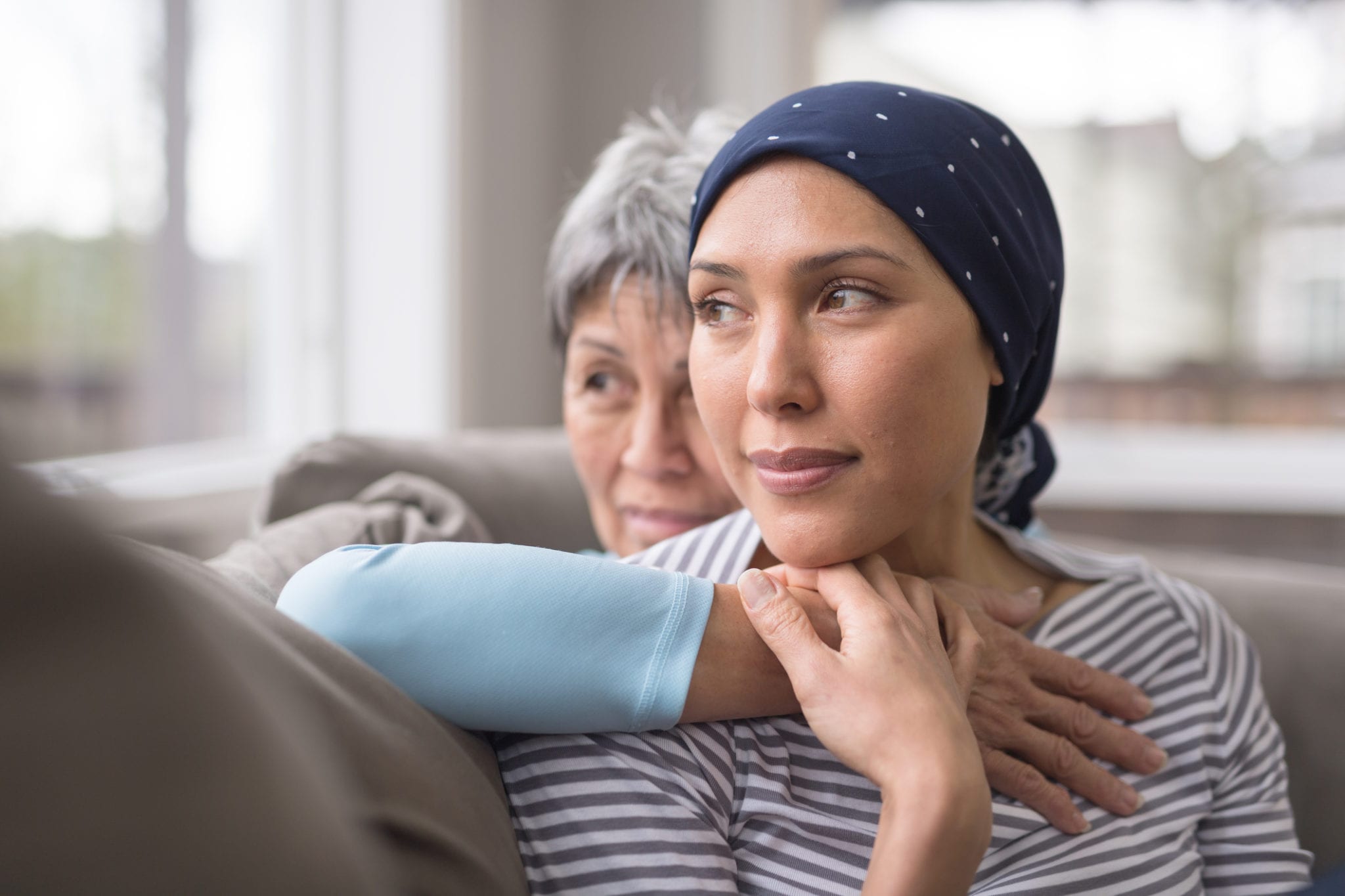Battling cancer is hard on the body and mind. When chemotherapy is no longer effective or worth the side effects, it may be time to start hospice. With the advice of a doctor, patients can decide if hospice is the right choice for them.
Hospice doesn’t treat cancer. Instead, it offers comfort care, relieving symptoms and supporting patients in the final phase of life. Many people view hospice as giving up. In reality, hospice is about affirming life and letting people live out their last days in comfort with family.
Stopping Active Treatment: When is a Person Ready for Hospice?
About one-third of advanced cancer patients pursue chemotherapy near the end of life. For some people, seeking active treatment keeps them focused on life in the present. However, research shows that cancer responds best to treatment the first time. Receiving treatments again and again often does little to improve cancer, especially with solid tumor cancers like breast, colon and lung cancer.
When is it time to call hospice for cancer? If someone has tried several treatments and their cancer continues to spread, it’s time to consider hospice. Conversations about hospice care are not easy. Talking about hospice means addressing the fact that your loved one is dying.
Having conversations about hospice early has been shown to reduce futile aggressive cancer treatments near the end of life. A 2017 study found that aggressive treatment near the end of life did not improve survival or quality of life for patients.
Hospice care prioritizes a patient’s quality of life, helping them complete end-of-life goals and avoid unnecessary time in the hospital.
Qualifying for Hospice Care with Cancer
Hospice care is for people who have tried the effective treatment options available to them and are ready to shift their focus to enjoying the rest of life.
Cancer patients must receive a prognosis of six months or less to live to receive hospice care. A doctor must provide this prognosis and a referral to hospice.
Dying with Dignity: What Can Hospice Do for Cancer Patients?
Hospice care gives cancer patients the chance to focus on life in the present—without chemo, radiation, surgeries or regular hospital visits.
If patients receive hospice care at home, they spend more time with family in a familiar place. Some patients need to receive hospice at a hospital or nursing home. A hospice team will meet the patient wherever they are.
Patients who receive hospice care have a better quality of life in their final days. In a 2016 study published by the Journal of the American Medical Association, patients who had chemotherapy within two weeks of death were less likely to pass away at home or their preferred place. Additionally, family members reported less satisfaction with end-of-life care if their loved one died in the hospital or was admitted to the ICU near death.
Hospice gives patients control. Patients decide how they wish to live out the rest of their lives. Receiving hospice can boost someone’s outlook on life and what’s waiting for them after death. No one is truly prepared for death from cancer, but hospice gives people the opportunity to come to terms with death and experience a less stressful passing.
Hospice Care Services
Hospice includes several services for the patient, caregiver and family.
Pain Management
A hospice team’s end goal is to provide comfort care. Hospice services help patients manage pain and symptoms from cancer and previous treatments. Registered nurses provide palliative care to help relieve pain and make your loved one as comfortable as possible.
Spiritual Support
Hospice services include emotional and spiritual support. Chaplains are important members of the hospice team. A chaplain will visit your loved one regularly to talk about their spiritual journey and support them in whatever way they need. Spiritual support is optional.
Caregiver Support
Caring for a dying loved one takes a toll on the family—especially the main caregiver. Caregivers are often spouses, children or grandchildren who have full-time jobs and families of their own. Hospice offers caregivers the education and support they need to care for their loved ones.
Bereavement Services
After your loved one passes, hospice continues to stay in touch with the family. Grief counseling, education and other bereavement services are included with hospice. You won’t have to go through grief alone. Your hospice team is there for you and your family.
How Long Does a Cancer Patient Live in Hospice?
There’s no way to know how long someone will live in hospice. The hospice team will keep you updated on the patient’s condition, but no one knows exactly when someone will die. The National Hospice and Palliative Care Organization reports cancer patients spent an average of 45 days in hospice care in 2018.
What Can You Do For Your Loved One?
As a caregiver or family member, one of the best ways to support your loved one is by simply being there. Cancer patients in hospice often experience fear, sadness and hopelessness. They don’t want to abandon family or be a burden. Talk to your loved one and let them lead conversations about issues related to their health if they are able.
Reflect on the past or help your loved one create something new. Here are a few examples of ways you can support them:
- Enjoy each other’s company. Talk. Read. Watch movies. Knit. Spend time together doing things your loved one enjoys. Friends and family can call or video chat if they cannot visit in person.
- Listen. It’s hard to hear our loved ones express fear or worry. Many caregivers experience a role reversal, where they are taking care of the person who has always taken care of them. Let your loved one express what they feel without judgment, even if it’s hard to hear what they have to say.
- Walk down memory lane. If your loved one wants to reminisce, join in! Reflecting on memories is one more thing you can do together. You can look at photos, watch home movies or tell your favorite family stories.
- Ensure they have an advance directive. Help your loved one get their affairs in order. If they can, help them create an advance directive so you know what their wishes are should they be unable to express them. You can also help your loved one connect with a lawyer or financial advisor to establish a will or plan their estate.
- Support them spiritually. If spirituality plays a significant role in your loved one’s life, find ways to help them connect with their beliefs and truths. You can invite religious leaders to visit, give your loved one space to pray, read scripture out loud or ensure they can see or touch cherished objects.
- Celebrate life. You and your loved one still have time left. Make the most of it by celebrating the good days. If your loved one is able, you can work together to record your family history, send letters to friends, scrapbook or gather family recipes. Any action, no matter how small, will mean a lot to your loved one.
Caregivers and family members play a large role in helping hospice patients feel loved and valued. You will help your loved one by being there as they experience the final season of life.
Is hospice the right decision for your loved one?
Contact Seasons Hospice. Our mission is to provide hospice care to anyone who wants to receive it—regardless of cost. We offer hospice care for cancer patients living in or around the Springfield, MO, area. Read more about what sets Seasons apart here.







